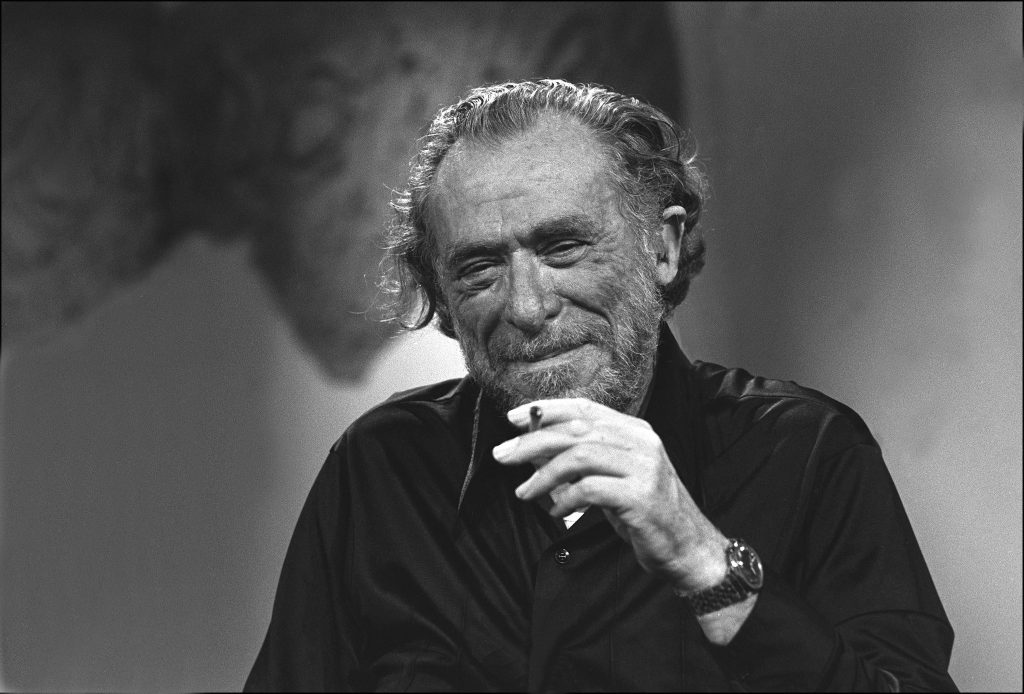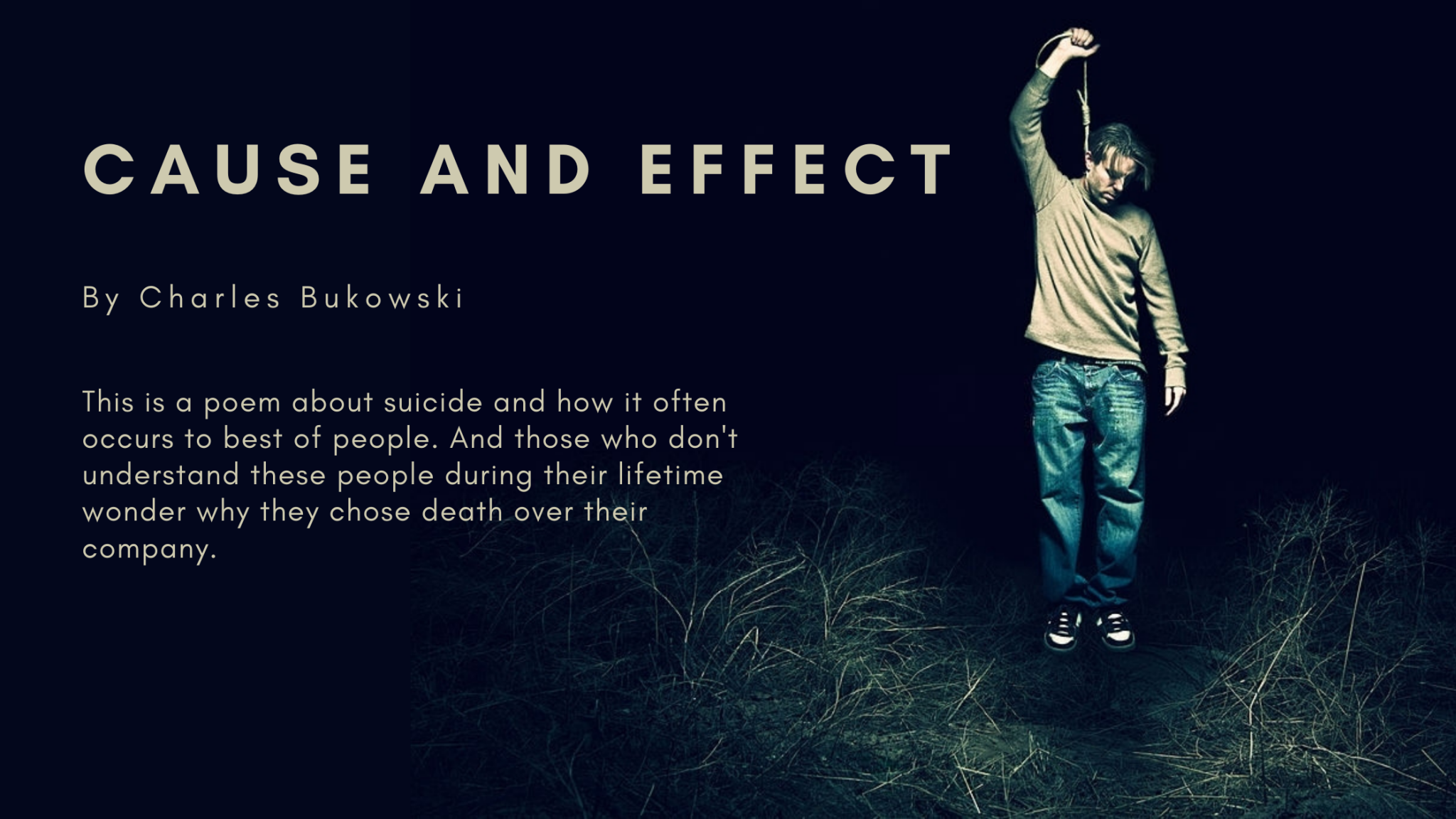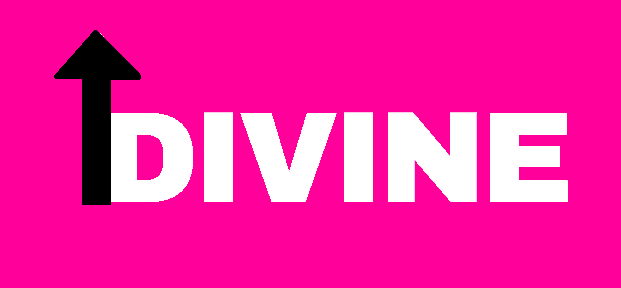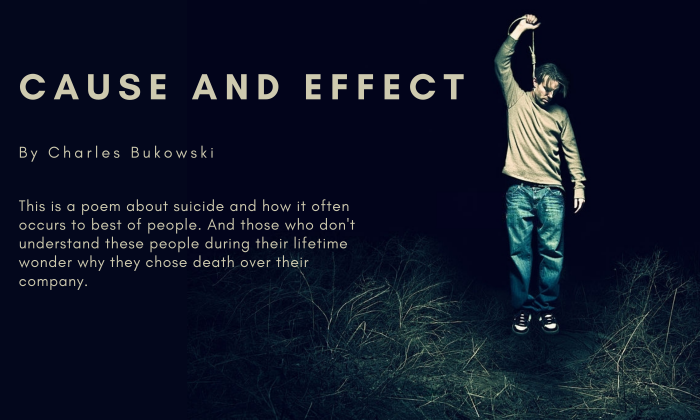Cause And Effect – The Poem
the best often die by their own hand
just to get away,
and those left behind
can never quite understand
why anybody
would ever want to
get away
from
them
~ by Charles Bukowski
What We Do On Social Media
Some time back, on a lazy Monday, I opened Facebook. There was a story by someone, I don’t even remember who. It began with some statistics about the number of people suffering from depression and anxiety and resulting suicides around us. Then it continued with spreading awareness about it. Like, what are its causes, its effects, how it can be prevented? The main message was the suicide could be prevented just by talking to the patients, and letting them know that you care and they are loved. In the end, the post asked you to copy and paste the same to let the people around you, who might be suffering, know that they could talk to you any time and that you are available.
I thought to myself, this is at least I could do for people. Back then I used to do a lot of such socially important things on Facebook. I was also a blood donor on Facebook. So, I pasted the same on my status and commented “done!” on the post by the friend who had posted it initially.
I had a friend from childhood. He was always cribbing about something or the other. Sometimes about environment changes, sometimes about the government, and sometimes about the systems around. He always had a problem. He had a very low endurance level. He wasn’t much active on social media, even his Twitter account was used to complain about the service providers. He wasn’t much physically strong either. Every now and then he had a fever, headache, cramps in legs, and so on. And he never really had any friends, except me.
He called me that evening. Like always, I said, “How are you? I was about to call you just today.” And like always, he said, “Good! Just one problem”. I said, “I’ve known you for the past 20 years or so, never ever have you answered with a smile that you are good or you are excited about something. You are always suffering. You know what, you should learn and be stronger.” He said, “Maybe you are right. I will call you sometime later, maybe.” And he hung up the phone.
I did not receive any call from him for the next two days. And the third day I received news from his parents that he died that morning. It was a brain hemorrhage. He wasn’t talking to anyone since last week and his parents told he was worried about something. No one really knows, what was troubling him, he never told anyone, anything.
I, of course, was sad about the incident for the next few days. Then I opened my Facebook account to post a “RIP message” when I saw the notification message about how many people had copied my depression message and typed “Done!” in the comments. I immediately realized where I was wrong all this way. I then realized that posting on Facebook was not enough. I should’ve done more.
I took the message. I posted on Instagram, on Twitter, on LinkedIn. I saw the message spread amongst all my friends. I posted it on YouTube. I made a Tik Tok. I posted it on Reddit. I posted it on DeviantArt, furaffinity, fanfiction.net. I posted it on foursquare and Myspace, just in case there were still people there – the more awareness, the better. I even sent grandma and grandpa an old fashioned email forward chain about mental health awareness. I then wrote this blog post about my journey into self-awareness to share with the world.
I stood in the corner of Main Street and 1st with a sign that says “Honk for mental health awareness!” – I’m glad that so many cars honked (probably because I was in the corner, but I’m willing to go the distance). I got so many likes and shares on that video, I’m so glad I’m helping spread the message about listening! I corrected my mistake so that what happened to my friend doesn’t happen to someone else.
MORAL: Isn’t this what we are doing for helping people? We often are too busy sharing messages about how much we care. But in reality, when someone comes to us actually with a problem, we shun them saying “there is no problem really, it’s all in your head”.
Charles Bukowski

Henry Charles Bukowski (born Heinrich Karl Bukowski; August 16, 1920 – March 9, 1994) was a German-American poet, novelist, and short-story writer.
His writing was influenced by the social, cultural, and economic ambiance of his home city of Los Angeles. His work addresses the ordinary lives of poor Americans, the act of writing, alcohol, relationships with women, and the drudgery of work. Bukowski wrote thousands of poems, hundreds of short stories, and six novels, eventually publishing over 60 books. The FBI kept a file on him as a result of his column Notes of a Dirty Old Man in the LA underground newspaper Open City.
Bukowski published extensively in small literary magazines and with small presses beginning in the early 1940s and continuing on through the early 1990s. As noted by one reviewer, “Bukowski continued to be, thanks to his antics and deliberate clownish performances, the king of the underground and the epitome of the littles in the ensuing decades, stressing his loyalty to those small press editors who had first championed his work and consolidating his presence in new ventures such as the New York Quarterly, Chiron Review, or Slipstream. Some of these works include his Poems Written Before Jumping Out of an 8 Story Window, published by his friend and fellow poet Charles Potts, and better-known works such as Burning in Water, Drowning in Flame. These poems and stories were later republished by John Martin’s Black Sparrow Press (now HarperCollins/Ecco Press) as collected volumes of his work.
In 1986 Time called Bukowski a “laureate of American lowlife”. Regarding Bukowski’s enduring popular appeal, Adam Kirsch of The New Yorker wrote, “the secret of Bukowski’s appeal … [is that] he combines the confessional poet’s promise of intimacy with the larger-than-life aplomb of a pulp-fiction hero.”
Since his death in 1994, Bukowski has been the subject of a number of critical articles and books about both his life and writings, despite his work has received relatively little attention from academic critics in the United States during his lifetime. In contrast, Bukowski enjoyed extraordinary fame in Europe, especially in Germany, the place of his birth.
Read more about Charles Bukowski, here.
Cause And Effect – The Poem Analysis
This is a poem about suicide and how it often occurs to the best of people. And those who don’t understand these people during their lifetime wonder why they chose death over their company. Charles Bukowski calls death as effect and oblivion created by people around him as an effect.
The poem has a very heavy undertone. It has a special emphasis on two things. One, that only the best people die of suicide. And two, about how casual people are about such incidents. There are two-tone one regarding the sorrow-filled in some hearts and carelessness filled in others. People surrounding these best people are so oblivious to deep sorrows that they keep wondering about the reasons why the person chose death over the beauty of life.
Cause And Effect – Form, Structure, & Meter
- The poem is a short poem of nine lines.
- The number of syllables in each line ranges between one and nine.
- The poem does not have any reference to any person, place, or incidence. It comes straight to the point.
- It expresses the most complex truth of life in the simplest poetic language.









The poem not only has a very heavy undertone, but the illustration has a very frightening call and strong warning for readers at the same time. And reading through the poem, I think, we should be more empathic for our companions. Everybody in his or her very own spot: so we can pay attention on our companions, and not only work off them when they are in trouble. And I think so, we can do it personally more easier than on the social media. The latter means a too big distance for being able to help efficiently.
Exactly! Even if the problem doesn’t seem big to you, it may be causing havoc inside the other. So it’s really unfair to disregard the same as the speaker in the story does.
So deep and true😔